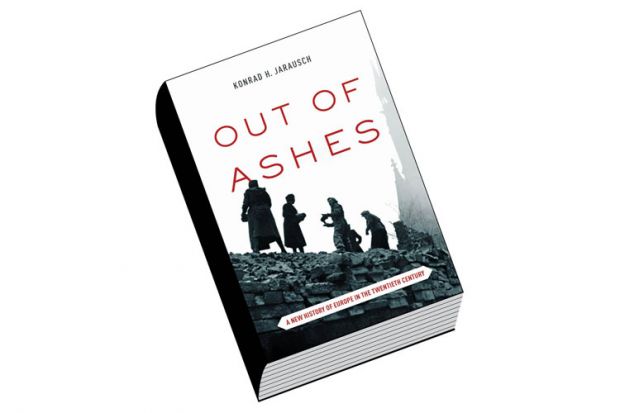The looming referendum on Britain’s membership of the European Union is a welcome opportunity, among other things, for members of my discipline to join public discussion on the trajectory of European history over the past 100 years. But as the formation of the pressure group Historians for Britain shows only too well, it is also an opportunity for spurious, partial and misleading accounts, the agendas of which are driven by anything other than fostering enlightened debate. Indeed, the need for a clear, interesting and cogent analysis of modern European history that cuts through the mythologies of the Little Englanders, Cold Warriors and imperial nostalgists has not been so pressing for a long time.
How, though, does one tell the history of Europe as a coherent story? A generation ago the dominant frame was that of liberty versus tyranny: for 100 or so years (so the story went), democracies stood up against dictators, and free marketeers defended enterprise against statism and social engineering, through wars hot and cold – culminating in the triumph of freedom (and the supposed end of history) in 1989. No doubt many “Historians for Britain” – some of whom probably last read a book on the history of 20th-century Europe when they were undergraduates – still think this way. But to those who see their task as debunking myth rather than perpetuating it, the German-born, US-based historian Konrad Jarausch has done a considerable service in writing this new synthesis.
Jarausch has his sympathies too, of course, and the trained eye will not struggle to detect them. This is, nonetheless, an intelligent, thoughtful and reliable account that is all the better for its studied rejection of partisan triumphalism and its pursuit instead of stern, critical and reasoned judgement. In Jarausch’s telling, European history is one of competing visions of alternative modernities – before 1945, a competition between liberal capitalism, fascist imperialism and Soviet-style socialism, and then after 1945, a struggle between the surviving two of these, under the mantle of Americanisation and Sovietisation. Not least in light of the plethora of recent histories of the First World War and its aftermath, the first half of the book tells a story that feels familiar, but it can be recommended nonetheless as a breezy, up-to-date summary of recent scholarly perspectives on that tumultuous period.
Where the book really lifts off, however, and where it arguably has the potential to be most valuable to students, to lay readers and indeed to many more expert readers too is in its treatment of the post-war world. Jarausch deftly integrates the story of European reconstruction and integration not only with that of the Cold War but also with that of decolonisation – an extended moment of post-war history whose impact is still massively underappreciated. These, in turn, are woven into wider stories of the transition from industrial to post-industrial society, the impact of globalisation, the post-Cold War adjustment of former Soviet satellites to various versions of democracy, and the cultural transformations that have attended the onset of the digital age.
In all of this, Jarausch cuts forcefully through the jeremiad-style lamentations of economic sclerosis, military pusillanimity, bureaucratisation and supposedly inevitable decline that the EU’s critics trot out like a set of tiresome old stuck records. He teases out, instead, the historical experiences and traditions that have led most Europeans to embrace peaceability over martial prowess, social welfare over sink-or-swim capitalism, and intergovernmental cooperation over Darwinist competition between nation states. This is not to say that he is starry-eyed or naive about the challenges faced today by the EU, its member states and, above all, its citizens – rather, his clear liberal voice provides a more compelling and credible starting point for pondering the possibilities for intelligent critique.
Above all, though, as far as a UK readership is concerned, he demonstrates forcefully that their history is not one played out separately from that of continental Europe, to be joined or sat out on the sidelines according to mood. Jarausch wrote this excellent book, according to the acknowledgements, to teach his US-born grandchildren something of their European heritage. One can only hope that it will also serve to remind British readers of something of theirs.
Neil Gregor is professor of modern European history, University of Southampton, and author of How to Read Hitler (2014).
Out of Ashes: A New History of Europe in the Twentieth Century
By Konrad H. Jarausch
Princeton University Press, 880pp, £27.95
ISBN 9780691152790 and 9781400865598 (e-book)
Published 24 June 2015
Register to continue
Why register?
- Registration is free and only takes a moment
- Once registered, you can read 3 articles a month
- Sign up for our newsletter
Subscribe
Or subscribe for unlimited access to:
- Unlimited access to news, views, insights & reviews
- Digital editions
- Digital access to THE’s university and college rankings analysis
Already registered or a current subscriber?
